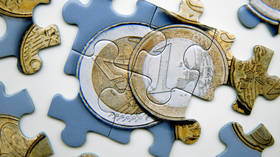More rate hikes predicted in Eurozone

Inflation in the Eurozone dropped to single digits for the first time in months in December, according to data from Eurostat, the statistical office of the EU, released on Friday.
The region’s headline inflation, which includes food and energy costs, came in at 9.2% year-on-year last month, falling sharply from 10.1% in November, the data shows. Analysts attribute the slower price growth to the drop in energy costs that came on the heels of unseasonably mild weather.
However, core inflation, which excludes food and energy, spiked to a record high of 5.2%, with analysts warning that the European Central Bank (ECB) will likely continue last year’s restrictive monetary policy well into 2023.
“The ECB is likely to stick to its hawkish rhetoric in the near term despite the big falls – and likelihood of further sharp declines this year,” Franziska Palmas, senior economist at Capital Economics research group, told the Financial Times. Paul Hollingsworth, chief economist at BNP Paribas, added that 2023 “will be mostly about getting under the hood of inflation and seeing exactly what is driving it.”
Last year, the ECB was raising the interest rate at an unprecedented pace to battle the surge in prices, hiking it from negative 0.5% in July to 2% by the end of the year. Carsten Brzeski, an economist at ING, told Bloomberg that “stubbornly high” underlying inflation will keep interest rates at higher levels following hikes in February, March, and “probably even in the second quarter,” with the regulator “moving its focus away from headline inflation to core inflation and wage growth.”
Last month, ECB President Christine Lagarde warned against focusing on short-term changes in the headline rate, as the coming months are likely to bring more price spikes.
“It may well be that the December number… will be a little bit lower. But we have good reasons to believe that January and February, for instance, are likely to be higher. So we cannot be fixated on one single number.”
The ECB projections for inflation this year remain well above its 2% target, averaging 6.3% by the end of the year.
For more stories on economy & finance visit RT's business section













